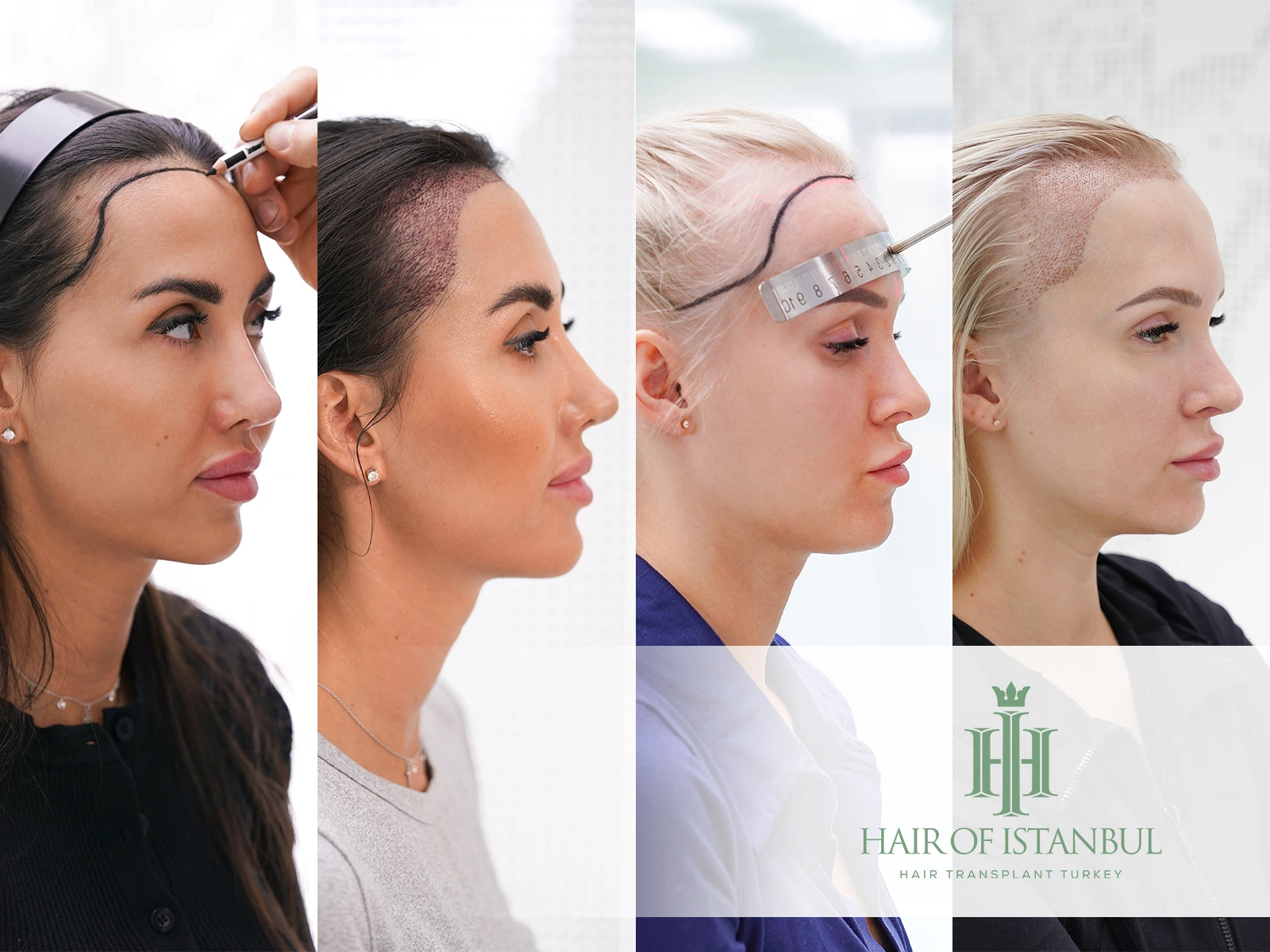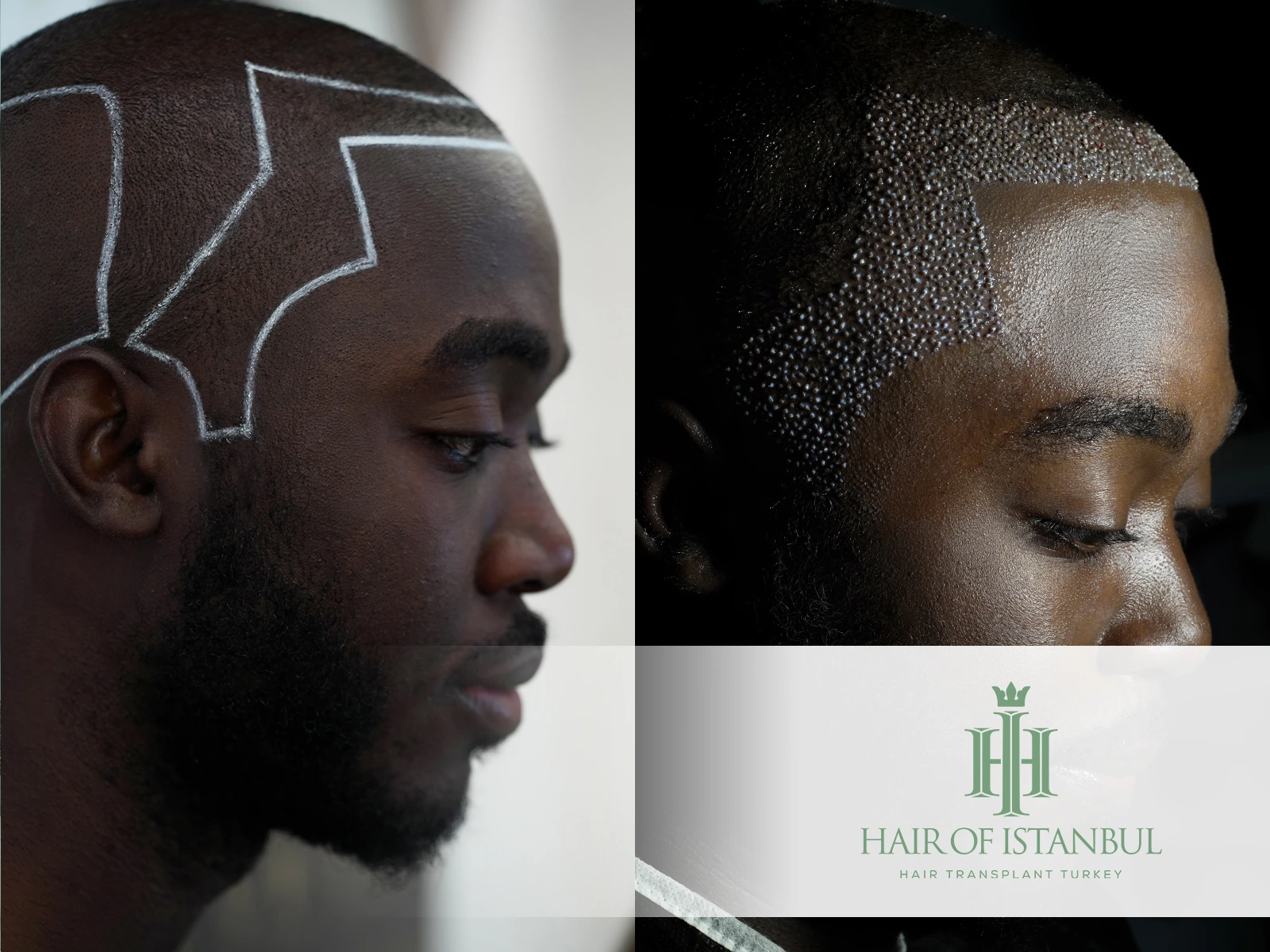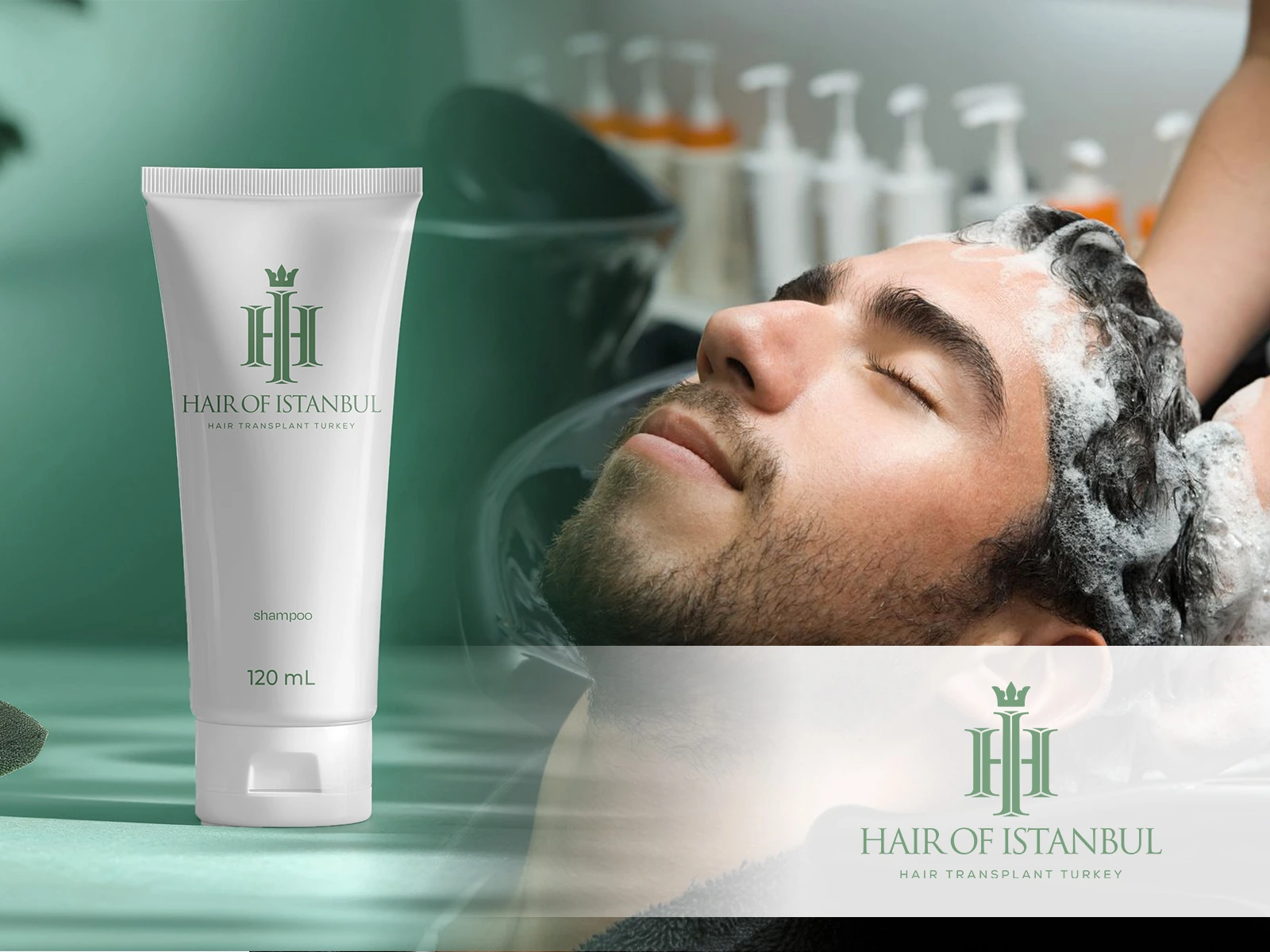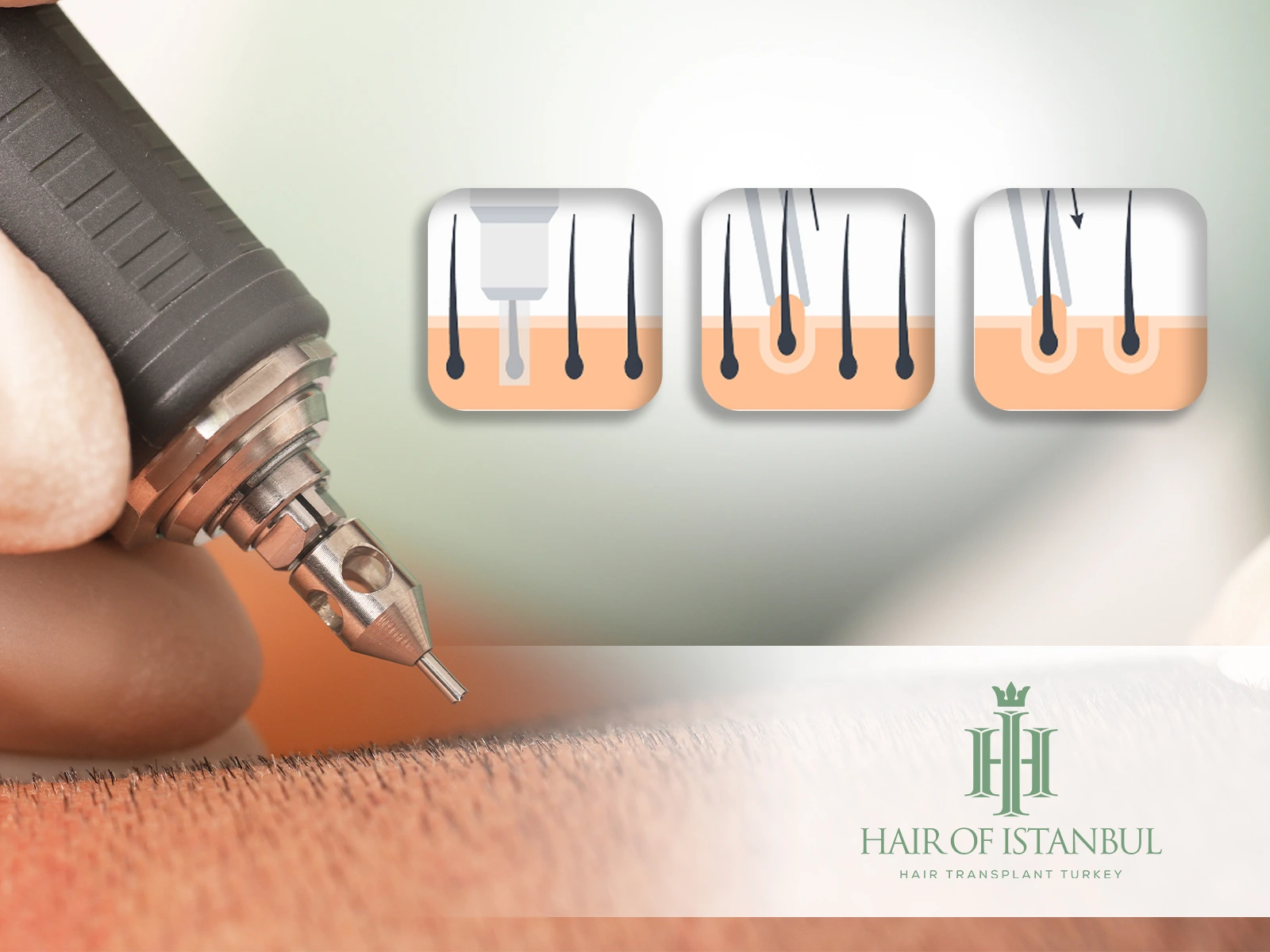Hair Transplant for Black Females: A Comprehensive Guide
Embarking on a journey toward reclaiming one’s crowning glory, many Black women are turning to advanced hair restoration techniques. This exploration is not just about aesthetics but also embodies a deeper quest for confidence and self-expression.
In the realm of cosmetic procedures, one method stands out for its ability to address unique challenges: the specialized hair transplant process tailored for Afro-textured hair. With innovations in technology and a nuanced understanding of diverse hair types, experts now offer solutions that promise natural-looking results while honoring the distinct characteristics of Black hair.
As we delve deeper into this topic, let’s uncover the transformative potential of hair transplants, shedding light on how they provide not just renewed hairlines but also a restoration of self-esteem for those who embark on this journey.
What Causes Hair Loss In Black Females?
Hair loss can be a more frequent and early-onset concern for Black females compared to other women, primarily due to the extensive styling practices they undergo. Excessive manipulation of the hair is a key factor. Let’s delve into a detailed table explaining the specific reasons behind hair loss in Black women: [1]
| Frequent use of heat for styling | Regular application of high temperatures can weaken hair strands, leading to breakage and loss. |
| Chemical treatments | Relaxers and dyes alter the hair’s natural structure, potentially causing damage and fallout. |
| Tight braids | Hairstyles that pull tightly on the roots can stress the scalp and weaken follicles. |
| Prolonged wearing of braided hairstyles | Keeping the hair in braids for extended periods without rest can strain hair follicles. |
| Dreadlocks | While protective, if not properly maintained, can lead to tension and stress on hair roots. |
Also Read: How to Fix an M-Shaped Hairline for Females: A Guide to Options
Does Hair Transplant Work For Black Women?
Certainly, hair transplant procedures are viable for Black women, though they come with unique considerations. The texture and styling practices of their hair necessitate a specialized approach. Surgeons with experience in Afro-textured hair can achieve excellent outcomes. This process not only restores hair but also confidence, making it a worthwhile option for those facing hair loss.
How Hair Transplants For Black Women Work?
Discussing hair transplantation for Black women involves recognizing that it requires specialized skills and techniques that not every clinic may possess. This distinction arises primarily because Black women’s hair characteristics and scalp conditions often differ significantly from those of other ethnic groups.
For instance, the natural curliness and texture of Black women’s hair demand unique handling and implantation strategies to ensure successful grafting and to achieve a natural, aesthetically pleasing result. [2]
| Feature | Hair Transplantation for Black Women | Other Hair Transplantations |
| Hair Structure | Typically curly and more fragile. Requires careful handling during transplantation. | Can be straight or wavy, generally more resilient. |
| Hair Follicle Shape | Follicles tend to be curved or spiraled, necessitating specialized extraction and implantation techniques. | Follicles are usually straighter, allowing for standard extraction and implantation methods. |
| Causes of Hair Loss | More frequently related to styling practices leading to traction alopecia, necessitating a preventative approach in addition to treatment. | Often due to genetic factors, age, or hormonal changes, with a more straightforward treatment approach. |
| Treatment Areas | Focus may be on the hairline and frontal regions, addressing issues of edge loss and density. | Typically involves the crown and vertex, targeting general thinning or balding areas. |
| Transplantation Technique | Requires expertise in handling curly hair follicles, using specialized tools and techniques to accommodate the unique curvature. | FUE (Follicular Unit Extraction) and DHI (Direct Hair Implantation) techniques are commonly employed. |
| Recovery and Care | Post-transplant care is crucial to manage the delicate nature of curly hair, emphasizing the need for specialized aftercare instructions. | Recovery and care routines may be more standardized, though personalized to the patient’s needs. |
| Aesthetic Goals | Achieving a natural-looking hairline and volume while considering the versatility of hairstyles is paramount. | The primary focus is on increasing density and coverage, with a natural-looking hairline also being important. |
Also Read: 17 Female Celebrities Confronting Hair Loss
What Black Women Should Expect During A Hair Transplant?
Before undergoing a hair transplant, Black women should be aware that this specialized procedure comes with its own set of expectations and requirements. It’s crucial for the process to be meticulously managed to cater to the unique characteristics of their hair texture. Here’s a detailed table under the title “What Black Women Should Expect During A Hair Transplant”:
| Stage | Expectations | Description |
| Consultation | A thorough initial consultation with an expert dermatologist or hair transplant specialist. | An in-depth evaluation of hair texture, causes of loss, and treatment goals. |
| Planning | Creation of a customized hair transplant plan. | Selection of techniques suited to the natural curliness and follicular structure of the hair. |
| Pre-operative Preparation | Hair cutting and area preparation. | Hair may need to be trimmed to ensure the operation area is clean and accessible. |
| Anesthesia | Procedure performed under local anesthesia. | Minimizing pain and discomfort during the hair transplant process. |
| Transplantation | Implantation of hair follicles using specialized techniques. | A delicate approach to implant curly hair follicles at the correct angles and appropriate locations. |
| Recovery Process | Customization of the recovery and care process. | Special instructions for the care of curly hair post-transplant and dealing with potential side effects. |
| Results | Expectation of natural-looking outcomes. | After the healing process, the transplanted hair follicles grow and integrate with the natural hair texture. |
Also Read: Female Frontal Hair Transplant: Transforming Hairlines
The Challenges of An Afro Hair Transplant
Undergoing an Afro hair transplant presents a unique set of challenges and intricacies that differ from other hair transplantation processes. This is largely due to the specific characteristics of Afro-textured hair, which require specialized techniques and a deeper understanding by the practitioner. The procedure, while offering transformative results, comes with its own set of hurdles that must be navigated carefully. [3]
Here’s a detailed table outlining the challenges associated with an Afro hair transplant:
| Challenge | Description | Impact on Transplant Process |
| Curly Hair Follicles | Afro-textured hair has uniquely shaped follicles that are curved, making extraction and implantation more complex. | Requires specialized tools and techniques to handle the follicles without causing damage, ensuring each graft is viable for transplantation. |
| Scalp Scarring | Afro-textured hair is more susceptible to certain types of scarring, such as keloids, which can complicate the healing process. | Careful planning and post-operative care are essential to minimize scarring and ensure a smooth recovery. |
| Traction Alopecia | This condition is more common among individuals with Afro-textured hair due to certain styling practices. | A comprehensive assessment is needed to address areas affected by traction alopecia and to plan for effective coverage. |
| Density Expectations | Achieving the desired density can be challenging due to the natural spacing of Afro-textured hair follicles. | The transplantation strategy must be carefully designed to meet aesthetic goals without compromising the health of the scalp. |
| Post-Transplant Care | Afro-textured hair requires specific post-transplant care routines to maintain the health of both the transplanted and existing hair. | Detailed guidance on washing, styling, and treating the hair post-transplant is crucial for optimal outcomes. |
Also Read: Can Too Much Vitamin D Cause Female Hair Loss?
Which Hair Transplant Method Is Best For African American Hair?
For African American hair, the Follicular Unit Extraction (FUE) technique stands out as the leading choice in hair transplantation. This method has surpassed older approaches like Follicular Unit Transplantation (FUT) due to its innovative and effective nature. FUE has gained popularity worldwide as it allows for precise follicle extraction without leaving significant scarring, making it ideal for the unique textures of Afro-textured hair.
Direct Hair Implantation (DHI) is another cutting-edge option that has been making waves in the hair restoration field. DHI offers advantages such as reduced handling of follicles and more control over the angle and direction of implantation, which can be particularly beneficial for achieving natural-looking results in curly hair types.
While FUE remains a preferred method, DHI presents a viable alternative for those seeking options tailored to Afro-textured hair, combining the latest technological advancements with the specific needs of this hair type.
Also Read: What Causes Female Hair Loss on Temples? Here’s What to Do!
CONCLUSION
At Hair of Istanbul, we pride ourselves on offering hair transplant solutions that are meticulously tailored to meet the specific needs of black females. Our commitment is rooted in understanding the unique characteristics and requirements of Afro-textured hair. We believe in providing a service that not only restores hair but also boosts confidence and self-expression.
Our clinic is equipped with the latest technologies and staffed by experts who are passionate about delivering exceptional results. Each procedure is conducted with the utmost care, ensuring that our clients receive personalized treatment plans designed for optimal outcomes.
Choosing Hair of Istanbul means entrusting your hair restoration journey to professionals dedicated to excellence and client satisfaction. We invite you to experience the transformative power of our specialized hair transplant services and look forward to being a part of your journey towards reclaiming your hair’s natural beauty and vitality.
References:
- [1] Rosenberg, Mar 29, 2023 – Hair Loss Treatments for African-American Women – https://www.se-plasticsurgery.com/blog/hair-loss-treatments-for-african-american-women/
- [2] Dr. Rodney, Jun 7, 2022 – Hair Transplants For Black Women May Be The Answer – https://eternaldermatology.com/hair-transplants-for-black-women/
- [3] Onur Kavas, Dec 26, 2022 – Black Women Hair Transplant / Hair Transplantation for Black Females – https://www.doctorbircan.com/black-women-hair-transplant/







